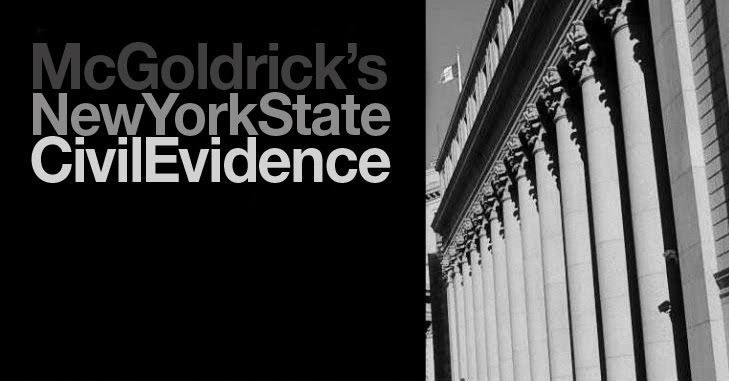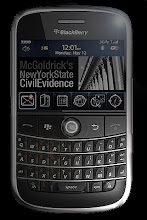The parties had been married for 16 years prior to separation. Prior to separation, the husband had provided the wife with the password to his email account, and during the marriage, the parties had accessed each others email accounts. After separation, the wife had changed her email password, but the husband neither changed his, nor told or gave notice to the wife that she was not permitted to access his account.
The husband contended that his wife was aware that he used a single password for all of his computer accounts, and that she was unreasonable in her belief that, despite his not changing his password until some two years after separation, she was allowed to access his account. The husband argued that the content of the emails were inadmissible under CPLR 4506 by reason that the wife had acted unlawfully under Penal Law 250.05. Further, the husband argued that the initiation of the divorce proceedings was an implied revocation of any authority previously given to her to access his account. In dismissing that argument, the Supreme Court held "that there is no statue that would recognize an "implied revocation upon service of a divorce action" and bar the use of the email "stored".
CPLR 4506
Eavesdropping evidence; admissibility; motion to suppress in certain cases.
1. The contents of any overheard or recorded communication, conversation or discussion, or evidence derived therefrom, which has been obtained by conduct constituting the crime of eavesdropping, as defined by section 250.05 of the penal law, may not be received in evidence any trial, hearing or proceeding before any court or grand jury, or before any legislative committee, department, officer, agency, regulatory body, or other authority of the state, or a political subdivision thereof; provided, however, that such communication, conversation, discussion or evidence, shall be admissible in any civil or criminal trial, hearing or proceeding against a person who has, or is alleged to have, committed such crime of eavesdropping.
Penal Law 250.05
Eavesdropping. A person is guilty of eavesdropping when he unlawfully engages in wiretapping, mechanical overhearing of a conversation, or intercepting or accessing of an electronic communication. Eavesdropping is a class E felony.
The court examined Penal Law 250.05 and CPLR 4506, and rebutted the wife's contention that CPLR 4506 did not apply to electronic communications.
"She relies on dicta in the case of Pure Power Boot Camp v. Warrior Fitness Boot Camp (587 F.Supp.2d 548 [SD NY 2008]) for the proposition that "[t]he plain language of the statute [CPLR 4506] seems to limit its application to the contents of the overheard or recorded communication[s]'" not electronic communication. However, the U.S. District Court further stated that "[u]ltimately, a determination of the meaning of CPLR § 4506 is unnecessary, and better left to the New York state courts" (id.). Furthermore, the court in Power Boot Camp v. Warrior Fitness Boot Camp in a footnote stated " . . . notes that Penal Law section 250.05 explicitly includes "electronic communication . . . ."
The husband argued that CPLR 4506 and Penal Law 250.05 were not limited to communication or transmission, but also applied to "the intentional acquiring, receiving, collecting, . . . of an electronic communication, without the consent of the sender or intended receiver thereof . . . " (Penal Law 250.00)."
The Supreme Court looked at two previous decisions relied on by the wife and the legislative intent behind Penal Law 250.05 (to prohibit the interception of communications, not the access of stored communications) in finding that she was entitled to rely on the content of the email transmission, save that they were not within the attorney client privilege. Key extracts from the decision follow:
"It is this court's understanding from the reading of the statute, legislative history and case law that the purpose of Penal Law section 250.00 is to prohibit individuals from intercepting communication going from one person to another, and in this case an email from one person to another. In the case at bar the email was not "in transit", but stored in the email account. Even assuming the husband's facts, as stated, to be true, the wife may have unlawfully retrieved information from a computer; in violation of Penal Law 153.10 but there was no interception and accordingly fails to fall within scope of CPLR 4506 as presently written."
...
"The wife relies on Moore v. Moore (NYLJ, August 14, 2008, at 26, col 1 [Sup Ct, New York County])where the husband sought to suppress material from the hard drive of a laptop computer, used by the family members, that was found by the wife in the trunk of her husband's car. The court in Moore held that Penal Law section 250.05 did not apply to the facts presented because "[i]n accessing the disputed files, plaintiff did not intercept, overhear or access electronic communications." (id.). The communication was saved to the hard drive by the husband and the wife's "subsequent access to that material downloaded and saved to the hard drive of the computer was not the result of an intercepted communication and does not constitute a violation of Penal Law section 250.05" (id.)
Similarly, the wife cites, in Boudakian v. Boudakian (NYLJ, December 26, 2008, at 21, col. 3 [Sup Ct, Queens County 2008]) where the husband sought suppression of information obtained by the wife from the parties' laptop computer. The court following the reasoning enunciated in Moore held that "[e]avesdropping does not apply since the communication at issue occurred on prior occasions and the wife's subsequent access to that material on the hard drive was not the result of an intercepted communication and does not constitute a violation of Penal Law section 250.05." (id.)."
"She relies on dicta in the case of Pure Power Boot Camp v. Warrior Fitness Boot Camp (587 F.Supp.2d 548 [SD NY 2008]) for the proposition that "[t]he plain language of the statute [CPLR 4506] seems to limit its application to the contents of the overheard or recorded communication[s]'" not electronic communication. However, the U.S. District Court further stated that "[u]ltimately, a determination of the meaning of CPLR § 4506 is unnecessary, and better left to the New York state courts" (id.). Furthermore, the court in Power Boot Camp v. Warrior Fitness Boot Camp in a footnote stated " . . . notes that Penal Law section 250.05 explicitly includes "electronic communication . . . ."
The husband argued that CPLR 4506 and Penal Law 250.05 were not limited to communication or transmission, but also applied to "the intentional acquiring, receiving, collecting, . . . of an electronic communication, without the consent of the sender or intended receiver thereof . . . " (Penal Law 250.00)."
The Supreme Court looked at two previous decisions relied on by the wife and the legislative intent behind Penal Law 250.05 (to prohibit the interception of communications, not the access of stored communications) in finding that she was entitled to rely on the content of the email transmission, save that they were not within the attorney client privilege. Key extracts from the decision follow:
"It is this court's understanding from the reading of the statute, legislative history and case law that the purpose of Penal Law section 250.00 is to prohibit individuals from intercepting communication going from one person to another, and in this case an email from one person to another. In the case at bar the email was not "in transit", but stored in the email account. Even assuming the husband's facts, as stated, to be true, the wife may have unlawfully retrieved information from a computer; in violation of Penal Law 153.10 but there was no interception and accordingly fails to fall within scope of CPLR 4506 as presently written."
...
"The wife relies on Moore v. Moore (NYLJ, August 14, 2008, at 26, col 1 [Sup Ct, New York County])where the husband sought to suppress material from the hard drive of a laptop computer, used by the family members, that was found by the wife in the trunk of her husband's car. The court in Moore held that Penal Law section 250.05 did not apply to the facts presented because "[i]n accessing the disputed files, plaintiff did not intercept, overhear or access electronic communications." (id.). The communication was saved to the hard drive by the husband and the wife's "subsequent access to that material downloaded and saved to the hard drive of the computer was not the result of an intercepted communication and does not constitute a violation of Penal Law section 250.05" (id.)
Similarly, the wife cites, in Boudakian v. Boudakian (NYLJ, December 26, 2008, at 21, col. 3 [Sup Ct, Queens County 2008]) where the husband sought suppression of information obtained by the wife from the parties' laptop computer. The court following the reasoning enunciated in Moore held that "[e]avesdropping does not apply since the communication at issue occurred on prior occasions and the wife's subsequent access to that material on the hard drive was not the result of an intercepted communication and does not constitute a violation of Penal Law section 250.05." (id.)."
Relevantly, the Supreme Court held that in accessing the email transmissions the wife may have violated "Penal Law 153.10", but that that was not sufficient for the operation of CPLR 4506 to render the evidence inadmissible. The Supreme Court likely intended to refer to Penal Law 156.10.

